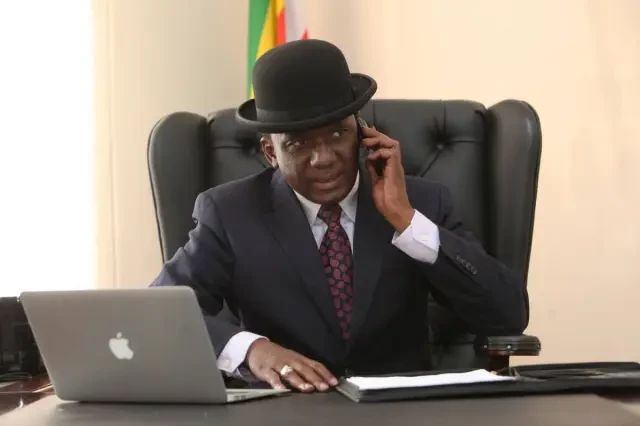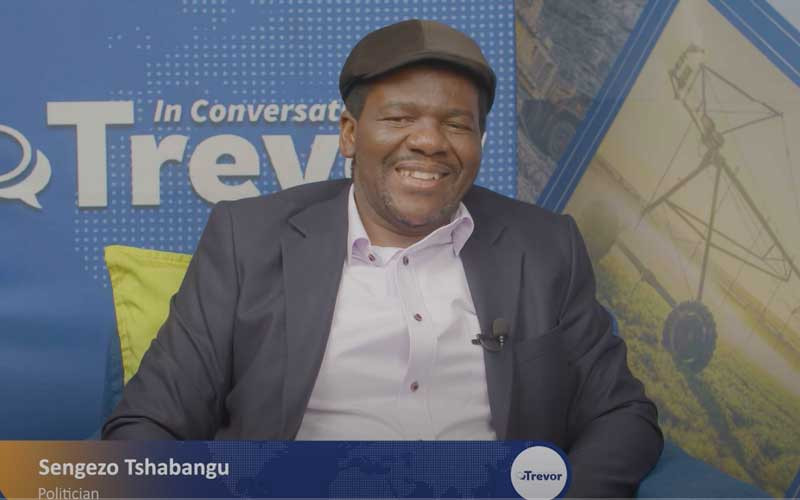
THE ongoing crackdown on civil rights activists and opposition members by President Emmerson Mnangagwa’s administration is a continuation of the repressive tactics employed by his predecessor, Robert Mugabe, to systematically silence dissent.
This has resulted in a significant shrinking of the democratic space in the country where the opposition political parties and civil society are increasingly muted in their criticism of Mnangagwa's heavy-handed approach.
Mnangagwa’s tenure has also been marked by the arrest of opposition figures, such as Citizens Coalition for Change (CCC) official Jameson Timba and 78 other opposition members in June.
With Zimbabwe set to host the Sadc summit this week, security forces have recently arrested and allegedly tortured human rights activists, including Namatai Kwekweza, Robson Chere, Samuel Gwenzi, and Vusumuzi Moyo.
They have all been denied bail. Political analyst Reuben Mbofana contends that the brutal crackdown on human rights activists exposes the extent of the militarisation of the state under Mnangagwa
He observed: “No protester, no matter how riotous they had become, was ever shot dead by the Mugabe regime. This is in stark contrast to the Mnangagwa era.
“Ever since he usurped power from Mugabe through the November 2017 coup d’état, his administration has become more militarised. Demonstrations, particularly perceived as anti-government, have never been allowed during the past seven years he (Mnangagwa) has been in office.
“In addition, the Mnangagwa regime has been the first and only to actually gun down protesters, in cold blood, as we witnessed in August 2018 and January 2019.”
- NoViolet Bulawayo’s new novel is an instant Zimbabwean classic
- Jah Prayzah, Zanu PF rekindles ‘lost love’
- Bank workers appeal to Ncube for tax relief
- Indosakusa marks 21-year anniversary milestone
Keep Reading
Another political analyst, Dumoluhle Moyo condemned the heavy-handedness that Mnangagwa is using to silence citizens.
“As the Sadc summit approaches, the irony is glaring: A nation brimming with potential stands on the cusp of progress while suppressing the very voices that could drive it forward,” he wrote in an article published in this edition titled Zim's legal paradox ahead of Sadc Summit.
“The government's crackdown on dissent is not just an affront to constitutional rights but a profound disservice to the promise of innovation and growth.
“The region and the world are watching. Will Zimbabwe's future be defined by its capacity to embrace change and empower its people, or will it remain shackled by laws that fear dissent more than they value progress?
“The answer lies not only in the summit's rhetoric but in granting tangible freedoms to those who dare to speak and act for a better tomorrow."
Rashweat Mukundu, also a political analyst, noted the similarities between Mugabe and Mnangagwa’s use of violence to consolidate power.
“It is difficult to make a distinction between Mugabe and Mnangagwa in terms of how violent they were and disregarded human rights,” he said.
“There is a continuum from Mugabe to Mnangagwa. It is the same system that was perpetrating violence from 1980 to date.
“The distinction came in 2017 when Zimbabweans had hoped that Mnangagwa would chart a new course in terms of ending state sponsored violence against civil society and political opponents. But what we have seen is a worsening violation of those rights,” Mukundu added.
In the wake of the latest crackdown on civil society members, organisations such as Amnesty International and Human Rights Watch have condemned Mnangagwa’s administration for using brute force to silence dissent.
Mugabe was notorious for his violent suppression of opposition as his popularity waned. Scholars of Zimbabwe's turbulent political history largely hold Mugabe responsible for orchestrating Gukurahundi, a brutal crackdown in the early 1980s that claimed the lives of nearly 20 000 people, mostly of Ndebele ethnicity.
They also blame Mnangagwa for the role he allegedly played as state security minister during that period. Political analyst Brian Raftopoulos, commenting on the factional battles within Zanu PF leading up to the coup, noted that the party's internal strife has a long history of violent conflict, dating back to the liberation struggle in the 1970s.
“This most recent factional struggle in Zanu PF follows a long history of violent internal battles within the party, from the years of the liberation struggle in the 1970s around ethnic and ideological questions,” the scholar wrote in an article titled: Zimbabwe: Caught between the Croc and Gucci City, published by Heinrich Stiftung in2017.
Mnangagwa, known for his Machiavellian tactics, earned the nickname “The Crocodile”. It came initially from the name of the guerrilla group he founded, but later came to denote his political shrewdness.
Analysts say the Zanu PF government has always used state violence and lawfare to silence dissent.
During Gukurahundi, Mugabe deployed the notorious 5 Brigade, trained in North Korea, to crush the Zipra forces of Joshua Nkomo’s Zapu.
Following a negotiated Unity Agreement in 1987, Mugabe and Nkomo brokered a peace that brought stability to the country.
However, from 1990 until 2017, Mugabe unleashed a reign of terror against his political opponents, culminating in the state-sponsored violence of the 2008 elections, which were widely condemned by international observers.
In 2009, under pressure from Sadc and mediation by former South African President Thabo Mbeki, Mugabe entered a coalition government with his fiercest rival, Morgan Tsvangirai, leader of the Movement for Democratic Change (MDC-T).
In the seven years that Mnangagwa has been in power, he has weaponised the law and unleashed the security apparatus to suppress civil society and opposition political parties.






